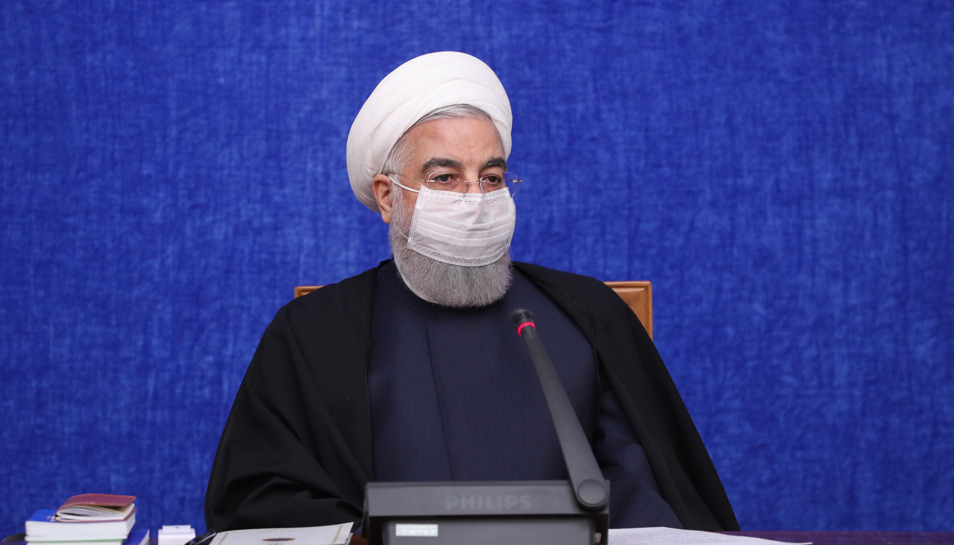
Iran’s President Hassan Rouhani at a meeting of specialized committees of the National Headquarters for Managing and Fighting the Coronavirus in Tehran. (Photo: president.ir)
Tehran, December 9 (RHC)-- Iranian President Hassan Rouhani says the administration of U.S. President Donald Trump is obstructing the Iranian people’s access to basic needs, particularly at the time of the coronavirus pandemic.
"This illegal and inhumane behavior of the Trump administration’s will remain in the minds of the world as a disgraceful act," Rouhani said while speaking on Tuesday at a meeting of specialized committees of the National Headquarters for Managing and Fighting the Coronavirus.
Iran has prepared all the necessary steps to produce the coronavirus vaccine inside the country by relying on the capability of Iranian scientists and specialized centers, he said, adding that vaccine purchase from abroad is also on the agenda.
The president said the headquarters tasked with the coronavirus battle has managed to implement health protocols, including smart distancing, as the most secure way, which resulted in a positive outcome in the containment of the disease. "As we managed to contain the economic war, we will overcome this obstacle as well."
In a post on his Instagram page on Monday, Governor of the Central Bank of Iran (CBI) Abdolnasser Hemmati said inhumane sanctions imposed by the United States against Iran prevented the country from purchasing the coronavirus vaccine.
He added that the purchase of the vaccine should be officially made through the World Health Organization (WHO). “So far, every method used to make payment and transfer the required currency [for the purchase of the vaccine] has been faced with obstacles due to the inhumane sanctions imposed by the US government and the need to obtain permits from OFAC (the U.S. Department of the Treasury's Office of Foreign Assets Control).”
Iran, one of the countries hit hard by the outbreak, reported its first cases of the fast-spreading disease in late February, about one month after the virus first showed up in China.
The spokeswoman for Iran’s Health Ministry, Sima Sadat Lari, said on Tuesday that a total of 1,062,397 individuals had contracted coronavirus across the country. She added that 323 fatalities were registered in the past 24 hours, raising the total toll to 50,917. Lari said 754,224 individuals had recovered.
In May 2018, Trump unilaterally withdrew from a UN-endorsed nuclear deal which the US had signed as a member of the P5+1 group with Tehran in 2015, and re-imposed the anti-Iran sanctions that had been lifted under the agreement.
Iran sued the U.S. at the International Court of Justice (ICJ) afterwards with the tribunal ruling that the US should lift its sanctions on humanitarian supplies.
The trade of humanitarian goods, such as food, medicine and medical devices, is theoretically allowed by the United States, but European companies refuse to do business with Iran, fearing secondary American sanctions. The bans imposed on the Iranian banking system have dissuaded many pharmaceutical firms from doing business with Iran.

